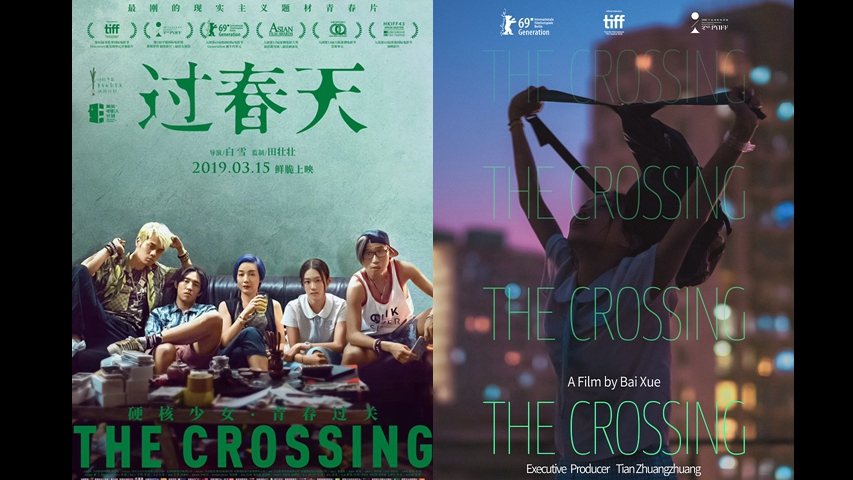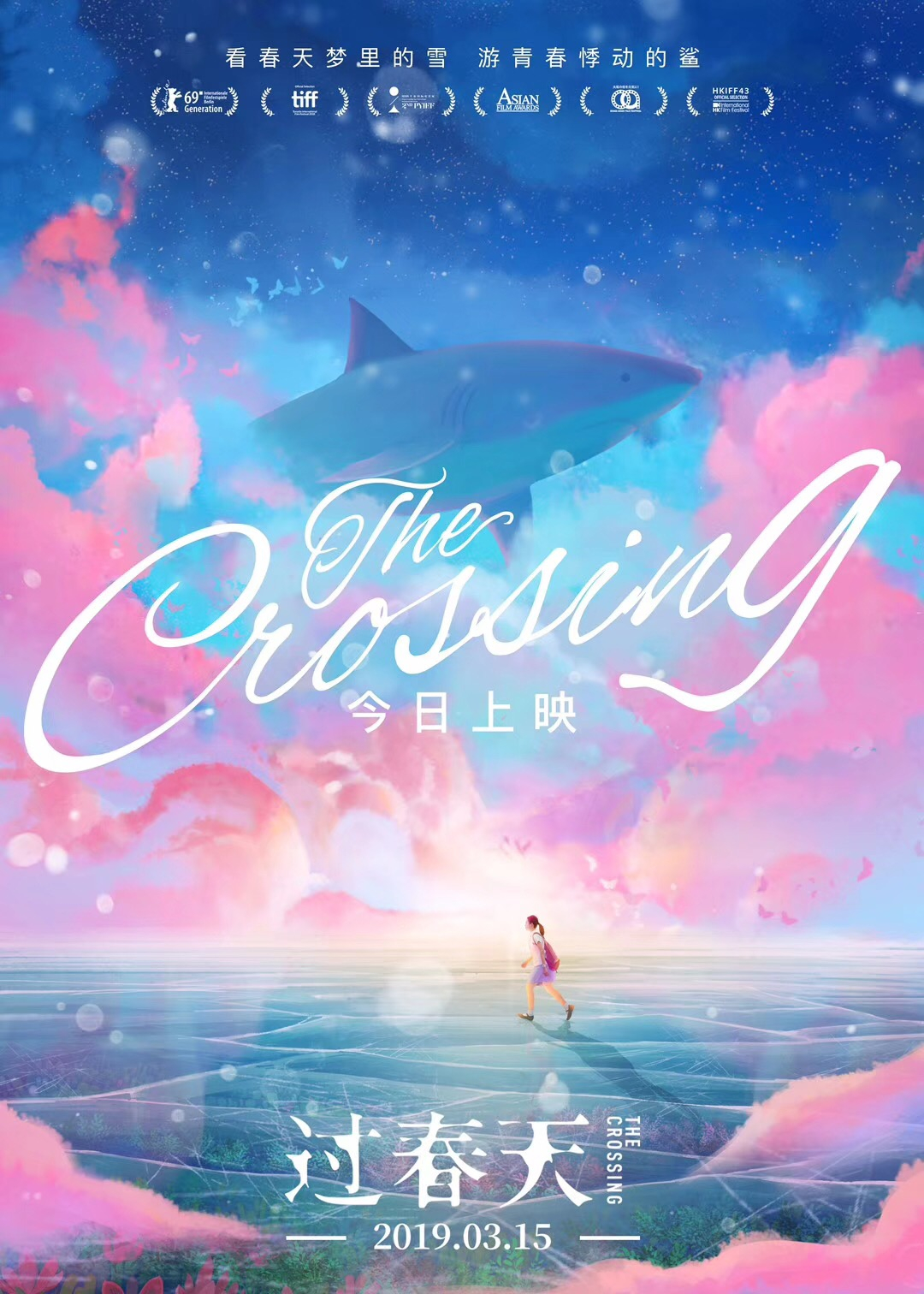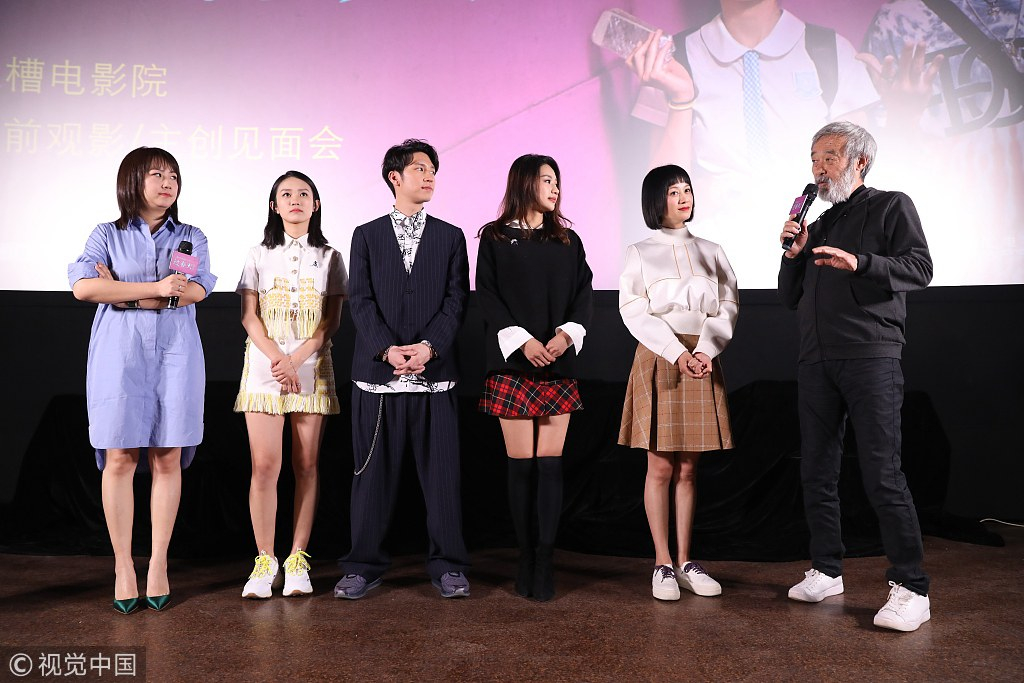
Movie/TV
08:27, 16-Mar-2019
'The Crossing': An intersection between youth and society
By Ye Qing

The film "The Crossing" was released nationwide on March 15. For the past six months, the discussion around the film has continued. It has been nominated for prizes at the Asian Film Awards, the Berlin Film Festival and recently won the Best Screenplay Award by the Dublin Film Critics Circle at the Dublin International Film Festival.
The movie has a poetic name associated with spring in Chinese, but the meaning behind it is much more than that. It comes from the slang of "Shuike" or "smuggler," meaning to "pass through customs smoothly."
The movie takes the life and culture of Shenzhen and Hong Kong as the background and tells the story of Pei Pei, a 16-year-old female high school student who lives in Shenzhen but studies in Hong Kong, and her friends.
A realistic youth film
The film does not stick to the platitudinous "identity problem," but uses the lives of the characters to integrate realistic criticism into the story.
According to some critics, this film is different from traditional youth films and does not focus on traditional scenes such as the campus. Instead, the story of the 16-year-old girl reflects the "Shuike" community in Shenzhen and Hong Kong. Viewers have called the idea a "breakthrough."

A poster for "The Crossing." /Wanda Pictures Photo
A poster for "The Crossing." /Wanda Pictures Photo
"Many people have said that 'The Crossing' is a breakthrough in youth film," Bai Xue, the movie's director, said at the premiere in Beijing. "I don't know how to categorize a breakthrough, I just want to use my own eyes and use a fresh and cool method to communicate with everyone."
A cinematic perspective from the mainland
Shooting in Shenzhen and Hong Kong, Bai Xue creates a unique audio-visual language for the two spaces. For example, the Shenzhen scenes are fixed and mostly involve daily life, while the shots of Hong Kong are switched more quickly.
"Shenzhen is very close to Hong Kong, people have a strong sense of urgency about time, but Hong Kong citizens have more pressure to survive," said Bai Xue.

The premiere of the movie in Beijing, March 11, 2019. /VCG Photo
The premiere of the movie in Beijing, March 11, 2019. /VCG Photo
Few mainland films reflect the urban life of Hong Kong in a real and close way, and the film is one of the first times the lives of Hong Kong citizens have been portrayed from the perspective of a mainland director.
Therefore, Bai Xue spent two years in Shenzhen and Hong Kong doing research. She interviewed cross-city students of all ages, even their parents, as well as customs and other personnel, and compiled more than 20,000 words of notes.
"No matter what story is written at the end of 'The Crossing,' I want to represent this group of people," Bai said in an interview. "This is the biggest motivation for me to write, and I want to write a story for them."
According to Bai Xue, in recent years, Shenzhen and Hong Kong's economies have begun to change. As the mainland economy has developed, and the gap with other countries has gradually narrowed, Pei Pei, the lead role, witnesses some of the changes in this era, but that's just a small piece of the story.
Of course, it may take someone with a good understanding of the current social conditions to grasp the content, but the significance of this work is that it will record the changes of this era if it stays, said Bai.
So far, the film's score on Douban, a Chinese film networking site, is 8.0.
(Head image: Two posters for "The Crossing." /Wanda Pictures Photo)

SITEMAP
Copyright © 2018 CGTN. Beijing ICP prepared NO.16065310-3
Copyright © 2018 CGTN. Beijing ICP prepared NO.16065310-3